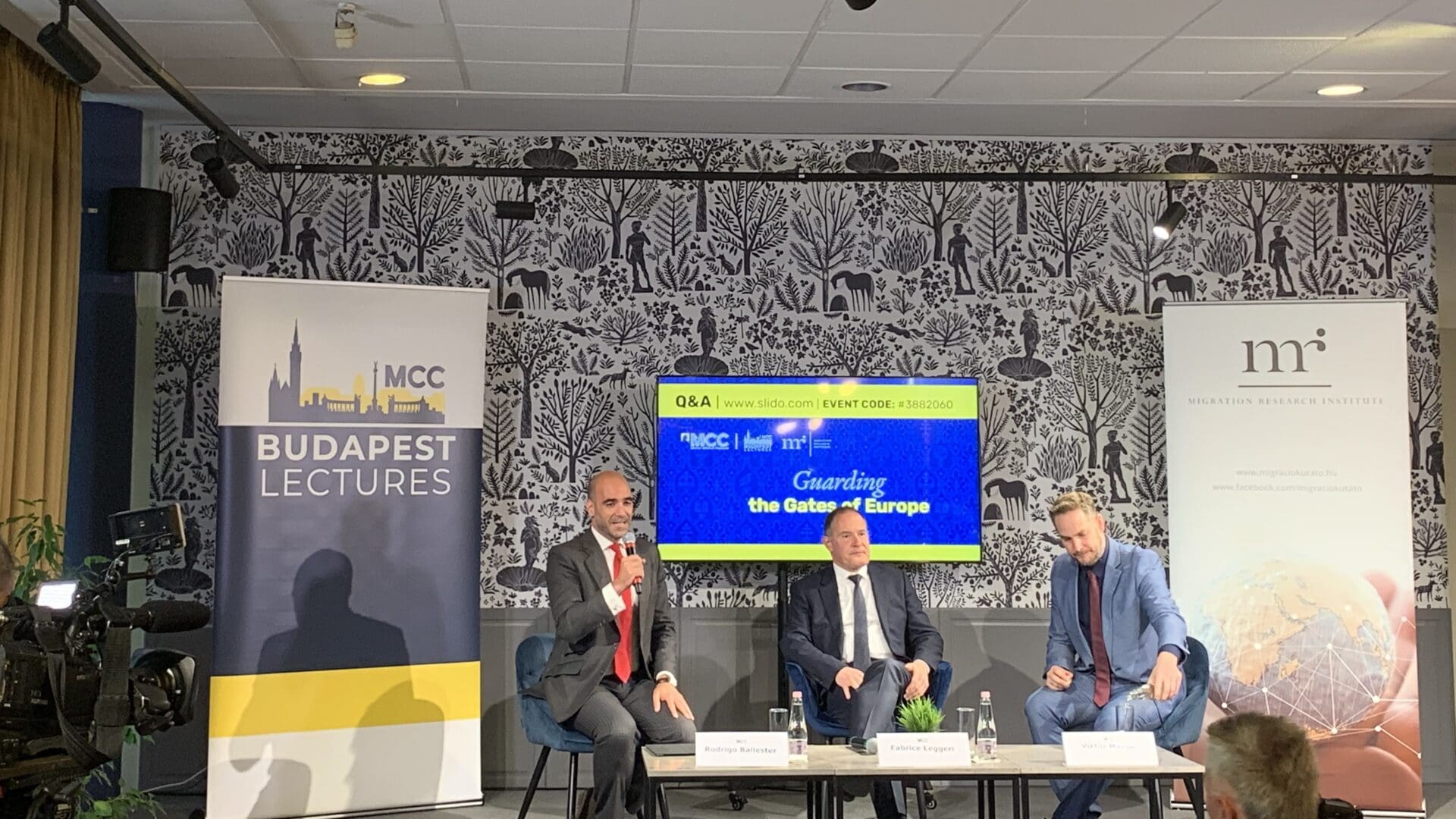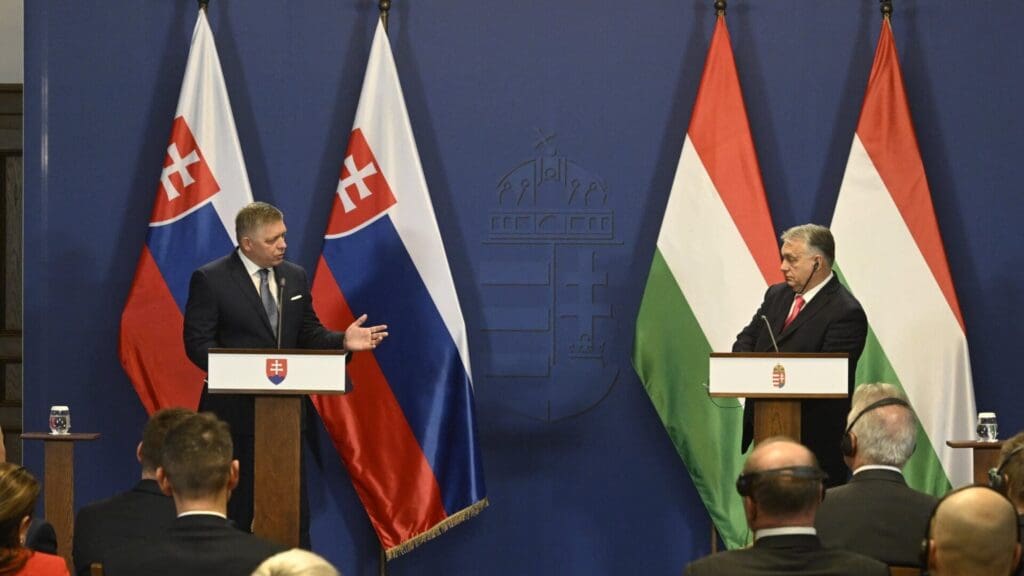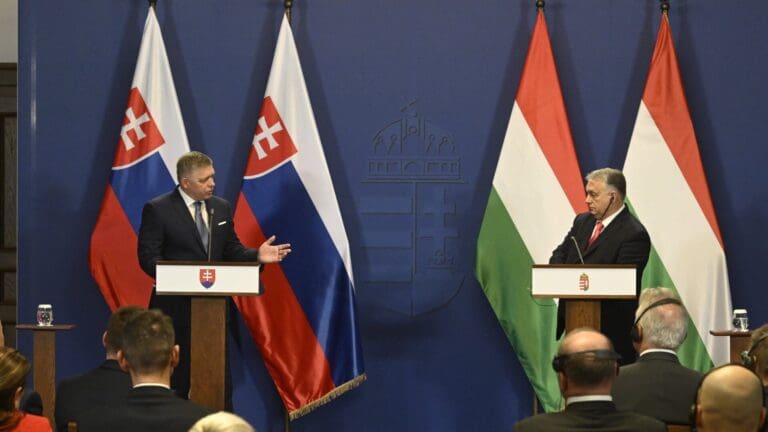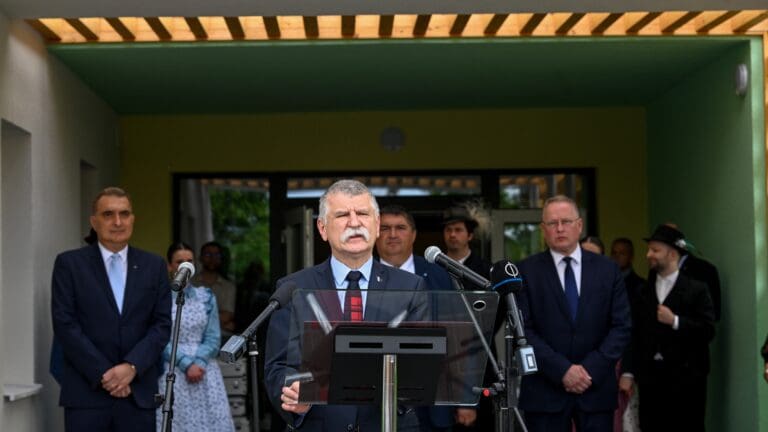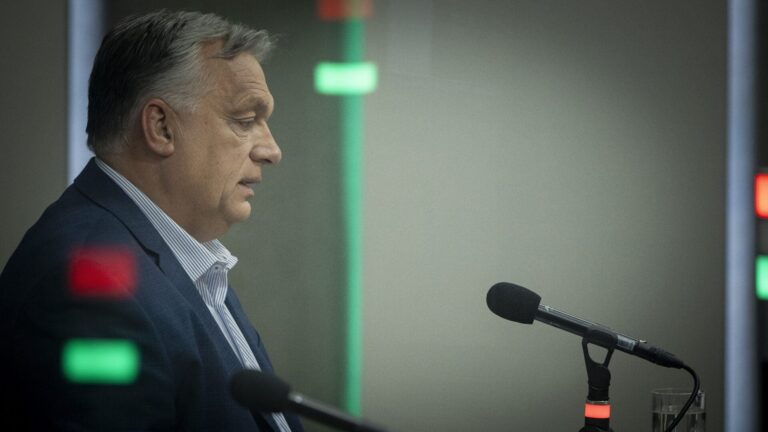In recent years, the European Union has attempted to transform the European Border and Coast Guard Agency (Frontex) into an organization that, instead of assisting member states in border protection, seeks to control their national border efforts, Rodrigo Ballester, the moderator of the discussion and head of the Centre for European Studies at the Mathias Corvinus Collegium began the discussion with a powerful statement on 25 April in Budapest.
The current legal framework of the European Union would allow for border defence, but in practice, we do not see this, stated Fabrice Leggeri, the ‘guest of honour’ at the event, who served as the director of Frontex from 2015 to 2022. In some countries, such as Hungary, there is political will to continue to guard the EU borders, but in other member states, it seems as if they have forgotten the function of the EU’s external border, he added. The former head of Frontex recounted that when the European Commission led by Ursula von der Leyen came into power, Ylva Johansson, the Commissioner for Home Affairs, informed him at their first meeting that whether he liked it or not, Europe is an aging continent, and Frontex’s task is to welcome migrants.
The European Union attempts to dissuade member states from defending their own borders on three levels,
he underlined.
The first is the moral level, where they argue that it is inhumane to prevent migrants from entering. The second is the operational level, where they argue that striving for border protection is entirely futile because it is an unattainable task. The third is the legal level, where they argue that denying entry to migrants contradicts the requirement that asylum seekers should not be returned to a country where their life would be in danger (non-refoulement principle). However, this principle formulated by the Geneva Convention has nothing to do with regular border defence, Ballester pointed out, adding that if the media portrays border guards as villains in this context, it can hardly expect them to perform their duties.
In the past three decades, the European Union has positioned itself as a humanitarian superpower, Viktor Marsai, director of the Migration Research Institute noted. We can see traces of this in geopolitics and the issue of asylum. The EU’s current asylum system is much more open than what the Geneva Convention requires, Marsai highlighted, adding that the Union has practically thrown its doors open. This is already a dead end because under current rules, anyone who reaches EU territory is entitled to apply for asylum. Anyone can claim to be fleeing persecution, and the system assumes this to be true. At the end of the lengthy process, in most cases, it turns out that the person is not eligible for refugee status, so they should be deported, but the deportation rate does not even reach 20 per cent, thus lacking deterrent force, the director of the Migration Research Institute argued.
NGOs fill the void between the Italian Coast Guard and the coastlines of Tunisia and Libya, significantly facilitating the work of human traffickers, he continued. NGOs argue that ‘the Mediterranean has become a cemetery for migrants’. However, the Sahara is a much larger cemetery;
two to three times as many people die crossing the Sahara towards North Africa,
but there are no photos taken of them like those of migrants drowned in the Mediterranean.
Whether NGOs are truly motivated by idealism or other goals, Leggeri could not answer definitively, but he did say that an investigation conducted by Frontex revealed patterns between the online communication of NGOs and the activities of human traffickers. He underlined that in some cases, Frontex saw that NGOs announce where their humanitarian ships are going to be stationed the next week. Then traffickers can just check their social media, and tell their customers ‘okay, a week from now, you will be saved by a European boat here’. He also added that in some cases they saw the vessels of NGOs turn off their GPS tracking in the middle of the ocean. He said that this in itself does not prove anything, however ‘if you are driving your car at night and turn off your headlights in the dark, that does raise suspicion, whatever you are doing’.
Related articles:

